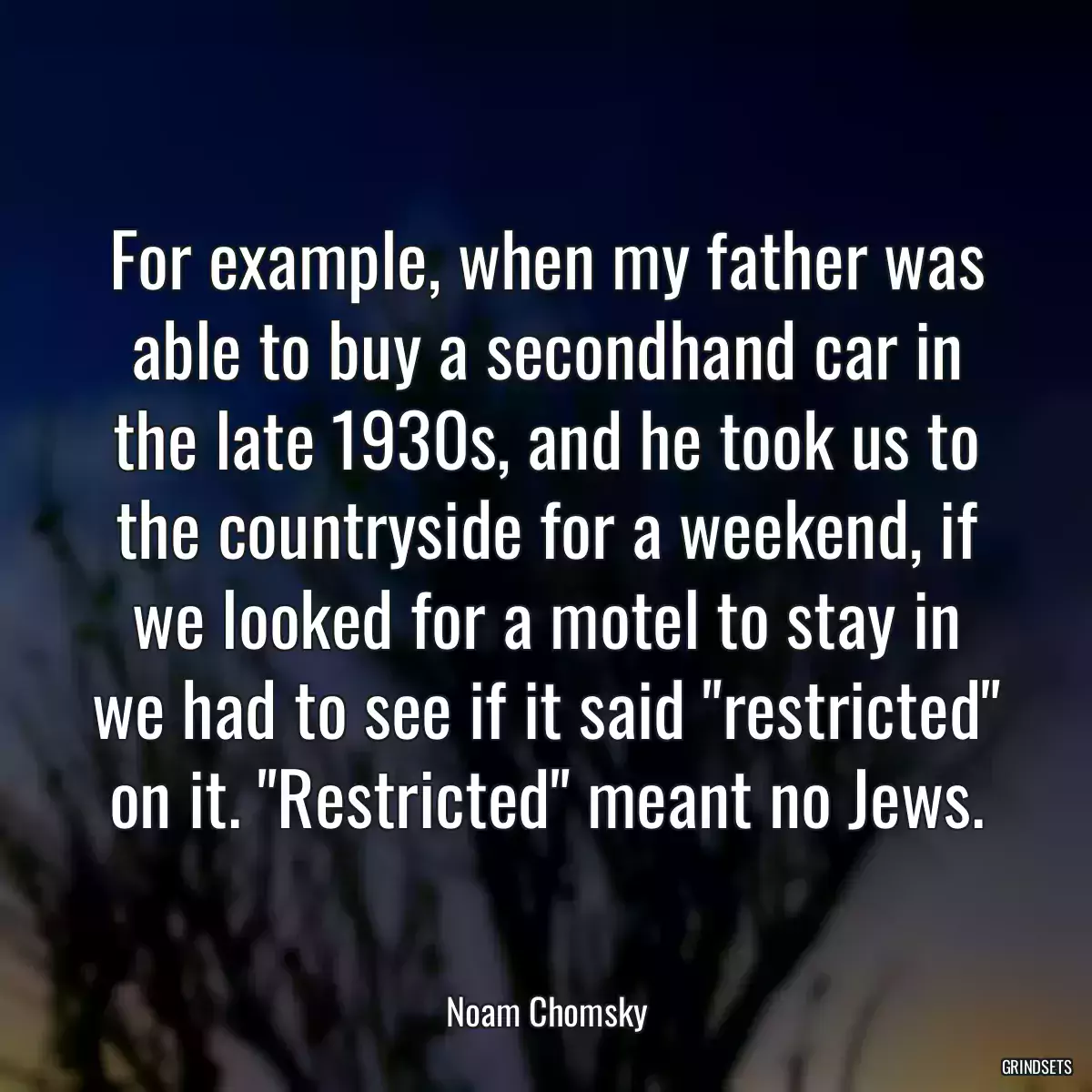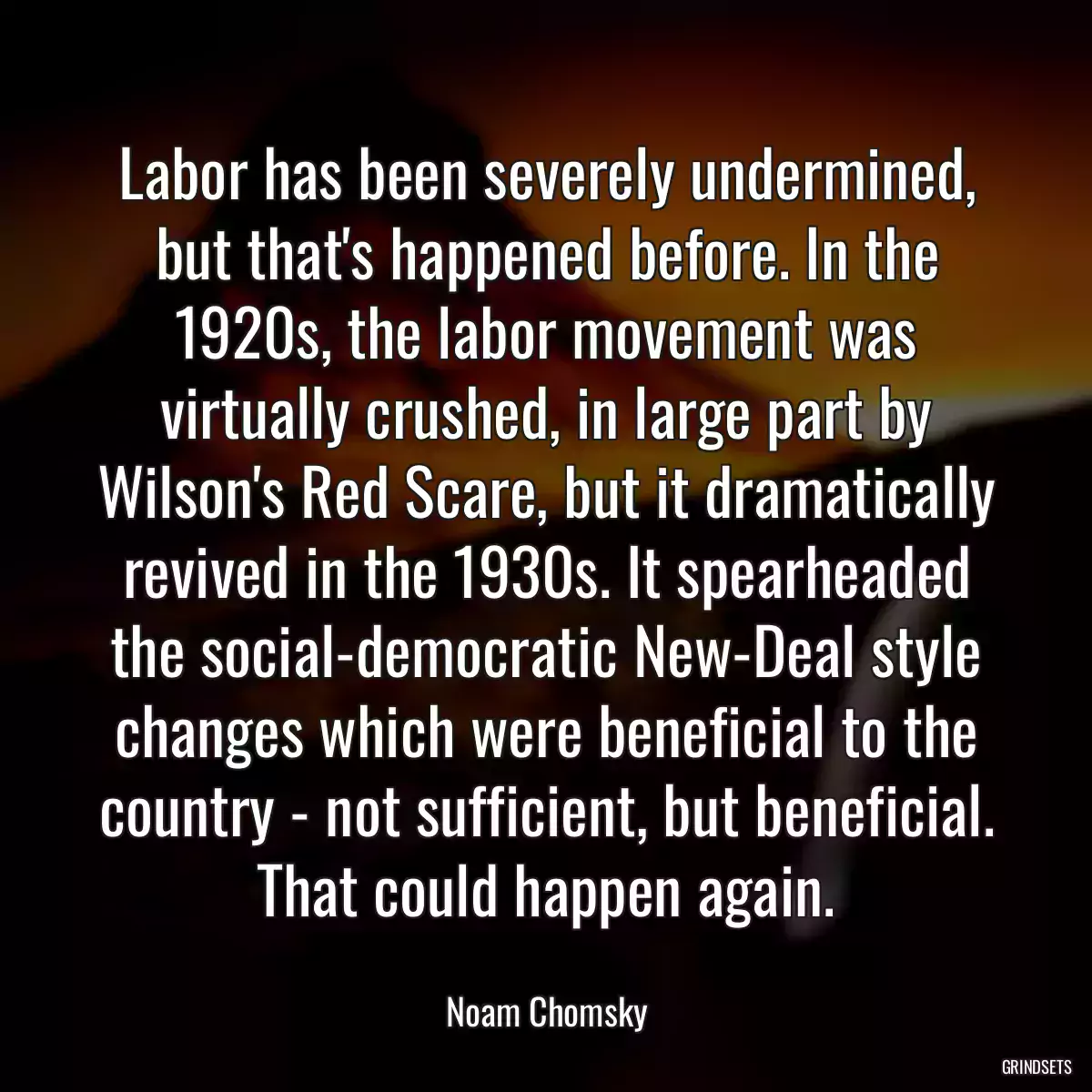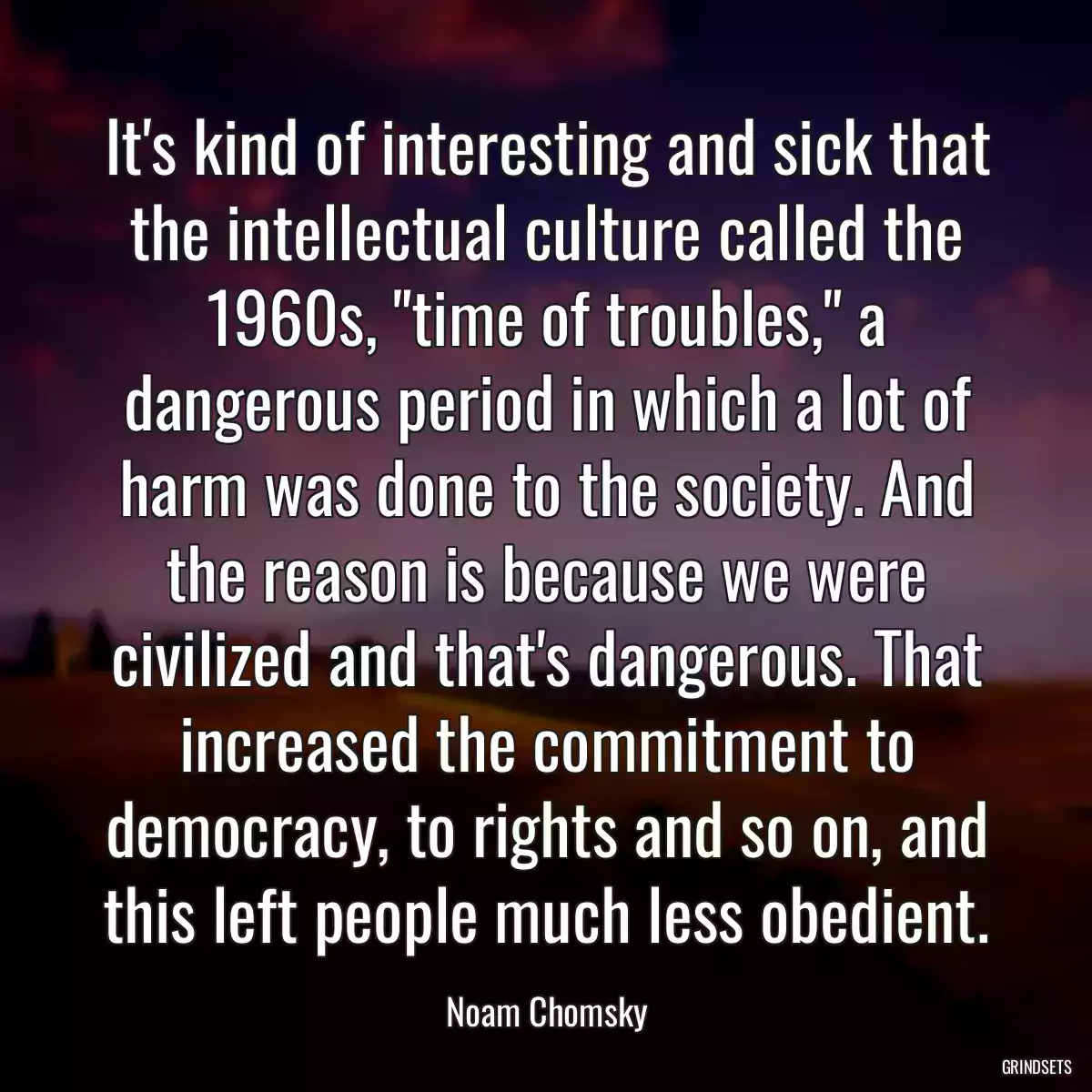
Quotes Noam Chomsky
Find dozens of Noam Chomsky with images to copy and share.

My own concern is primarily the terror and violence carried out by my own state... It is very easy to denounce the atrocities of someone else. That has about as much ethical value as denouncing atrocities that took place in the 18th century.
Bohemian Grove seems to be a kind of frat house affair. Bilderberg [philosophy] may be marginally more serious. The CFR is transparent. You can read their publications. In the 18th century it perhaps made some sense to conjure up the Illuminati and Masons. Not since.
There's one white powder which is by far the most lethal known, it's called sugar. . . . The Caribbean back in the 18th century was a soft drug producer: sugar, rum, tobacco, chocolate. And in order to do it, they had to enslave Africans.
You may also like
I had two spinster aunts who were seamstresses, and of course unemployed in the 1930s, but the union gave them a life. They had a couple of weeks in the country for a union installation and they had educational programs and all sorts of things. There was a life, you know, a real community.
The human species is now at a point where it has to make choices that are going to determine whether decent survival is even possible. Environmental catastrophe, including war, maybe pandemics, these are very serious issues and they can't be addressed within the current structure of institutions. That's almost given. There have to be real significant changes, and only really effective popular mass-based movements can introduce and carry forward such initiatives, as indeed did happen during the 1930s.
They [unions] used straight Marxist rhetoric [in 1930s] - just the values were changed.
All you have to do is read the business literature. In the 1930s they were very frightened and they were concerned about how the rising power of the masses was hazardous to industrialists.
The labor movement had been pretty much killed in the 1920s, almost destroyed. It revived in the 1930s and made a huge difference. By the late 1930s the business world was already trying to find ways to beat it back.

Labor has been severely undermined, but that's happened before. In the 1920s, the labor movement was virtually crushed, in large part by Wilson's Red Scare, but it dramatically revived in the 1930s. It spearheaded the social-democratic New-Deal style changes which were beneficial to the country - not sufficient, but beneficial. That could happen again.
When I was growing up in the 1930s and '40s anti-Semitism was rampant. It wasn't like Nazi Germany but it was pretty serious - it was part of life.
It was reported in the left-wing press in the late 1930s that the Texas Company (Texaco), headed by the Nazi sympathizer Torkild Rieber, diverted its oil shipments from the Republic, with which it had contracts, to [Francisco] Franco.
Actually, the phrase "national security" is barely used until the 1930s. And there's a reason. By then, the United States was beginning to become global. Before that the United States had been mostly a regional power - Britain was the biggest global power. After the Second World War, national security is everywhere, because we basically owned the world, so our security is threatened everywhere. Not just on our borders, but everywhere - so you have to have a thousand military bases around the world for "defense.
Whatever the reasons may be, I was very much affected by events of the 1930s - the Spanish Civil War, for example, though I was barely literate.
The Fourteenth Amendment, after the civil war, in principle brought former slaves into the category of persons, theoretically. But if you actually look, almost all the cases brought up for personal rights under the Fourteenth Amendment were by corporations. Freed slaves couldn't do it. In fact they were pretty much driven back into something like slavery by a north - south compact, that allowed former slave states to criminalize black life, which made a criminal force that was basically used as a forced labor force, up until the 1930s.
During the 1960s, large groups of people who are normally passive and apathetic began to try to enter the political arena to press their demands.... The naive might call that democracy, but that's because they don't understand. The sophisticated understand that that's the crisis of democracy.
In the 1960s, there was a point, 1968, '69, when there was a very strong antiwar movement against the war in Vietnam. But it's worth remembering that the war in Vietnam started - an outright war started in 1962.
Democracy was regarded as entering into a crisis in the 1960s. The crisis was that large segments of the population were becoming organized and active and trying to participate in the political arena.
You may also like

It's kind of interesting and sick that the intellectual culture called the 1960s, "time of troubles," a dangerous period in which a lot of harm was done to the society. And the reason is because we were civilized and that's dangerous. That increased the commitment to democracy, to rights and so on, and this left people much less obedient.
I think the activism of the 1960s had a very definite civilizing effect on the whole society in all kinds of ways. So lots of things that by now are almost taken for granted were heretical in the 1960s. We had anti-sodomy laws until not many years ago.